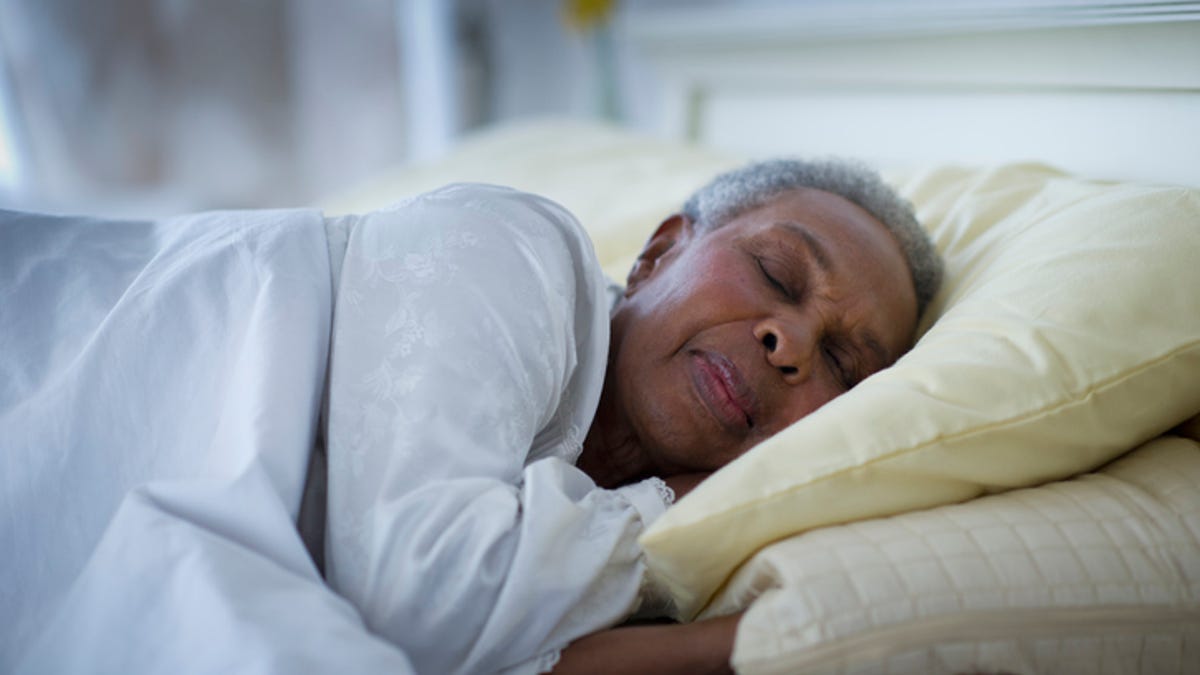From cnet.com
Almost half of adults over 60 years old have insomnia, but these tips will help you combat poor sleep
Insomnia can strike anyone regardless of age, but research shows it's an especially prevalent issue among older adults. About 50% of adults aged 60 and up experience poor sleep. Our bodies are constantly changing as the years pass, and our sleep tends to be an unfortunate casualty of ripened age. There seems to be multiple explanations of this.
The natural processes that occur as you get older combined with common external factors is a recipe for worsened sleep quality, and it's important to understand what's happening so you can get ahead, and try to put poor sleep to rest.
Sleep plays a key role in maintaining our mental and physical health. Habitual sleep deprivation increases the risk of significant health conditions including heart disease, diabetes, stroke, depression and even dementia. With so many older adults living with insomnia, it's important to practice healthy sleep habits. For help getting you back to a healthy sleep schedule and more information about the effects of aging on sleep, continue on below.
How sleep patterns change as we age

Putting external factors aside, it's common for older adults to experience a change in sleeping patterns because of disruptions to the circadian rhythm. The area of the brain called the suprachiasmatic nucleus responsible for regulating our body's circadian rhythm, otherwise known as our internal clock, weakens in older age. As a result, it disrupts your usual rhythms causing changes in your sleep and hunger cycles.
Aging also seems to affect the body's production of important sleep-inducing hormones. In old age, the body produces less melatonin, a hormone influenced by darkness that's released around bedtime and promotes feelings of sleepiness.
Research shows that seniors spend more time in lighter sleep stages and less time in REM or deep sleep, which causes more frequent wakeups.

5 ways to get better sleep
Common sleep disruptions in older adults
Becoming older in itself isn't the cause for poor sleep. Other factors like health conditions and daily habits can contribute to the development of sleep disorders. Let's take a look.
Health conditions

Physical and mental health conditions also play a significant role in an aging adult's sleep quality. A study by the Sleep Foundation found almost a quarter of adults between the ages of 65 and 84 were diagnosed with four or more health conditions and received less than 6 hours of sleep a night.
Pain-inducing ailments like arthritis and fibromyalgia cause discomfort and sleep disruptions in older adults, in addition to other medical issues such as sleep apnoea, diabetes, stress, anxiety, heart disease and depression. For those diagnosed with a combination of these conditions, a night of restful sleep may feel difficult to achieve.
Medications
Almost 9 out of 10 adults aged 65 years or older report taking prescription medication, and not all meds are sleep-friendly. Certain prescriptions like amphetamines, antidepressants and beta-blockers or medications for high blood pressure can harm your quality of rest, while antihistamines and antipsychotics can cause daytime drowsiness.
Daily habits
With older age comes a slower routine and daily habits that play a part in reducing quality rest. Daytime naps, less time spent outside and low exposure to natural light can disrupt your circadian rhythm. People who feel loneliness from low social interaction may also feel increased anxiety and stress, playing a part in poor sleep.
For more help getting better sleep, try these six natural sleep aids and ways to help relieve anxiety before bed.
The information contained in this article is for educational and informational purposes only and is not intended as health or medical advice. Always consult a physician or other qualified health provider regarding any questions you may have about a medical condition or health objectives.
No comments:
Post a Comment